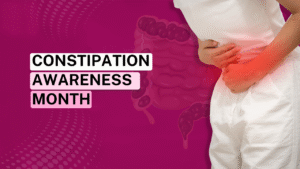
Why is cervical spine health important?
The neck muscles are anti-gravity muscles that help to maintain mobility of the head and neck over the shoulders.
Neck posture is important to prevent forward neck / neck pain / rounding of shoulders.
For optimal function, stability and mobility of shoulder joint.
It affects the alignment of the rest of the spine, including middle and lower back spine health.
Which health groups are at more risk of cervical pain?
- It can affect all age groups.
- Common in people above 60 years of age.
- People with a sedentary lifestyle.
What causes cervical pain?
- Cervical spondylosis ( neck stiffness & neck pain).
- Overuse of muscles due to prolonged use of laptop/desktop in an incorrect sitting posture.
- Having a previous history of neck pain/stiffness.
- History of neck injury eg: whiplash injury during a car/bike accident.
- History of headaches.
- Lifting heavy weights too soon with improper technique.
- Weak upper back and shoulder muscles.
- Lack of mobility.
- Age-related degenerative osteoarthritis of the neck.
- Disc herniation in the cervical spine.
- Nerve pain due to disc herniation.
General Management of Cervical Pain:
Following measures can be taken to ease cervical pain.
Symptoms vary from person to person. Higher neck pain symptoms with a history of injury/disc herniation should be treated after confirming diagnosis with an X-Ray or cervical spine MRI, under the guidance of an Orthopaedician.
- Posture assessment of the neck and spine by the physical therapist.
- Posture correction exercises to reduce forward neck posture.
- Neck strengthening exercises & neck muscle stretches.
- Deep tissue release / soft tissue mobilisation of the tight muscles around the neck.
- Upper back muscle strengthening.
- Release of trigger points in muscles.
- Resistance exercises for upper back and neck muscles.
- Ergonomic measures at the work desk to reduce strain caused to the neck due to poor neck posture during prolonged use of laptop/desktop.
- Rest and ice pack application during a sudden spasm or neck pain episode.
- Not using more than one pillow under the head while sleeping.
Dr. Janhvi Vayada – Clinical Sports Physiotherapist





